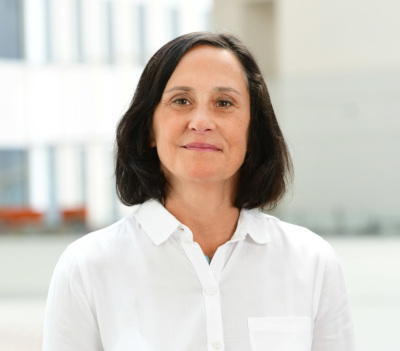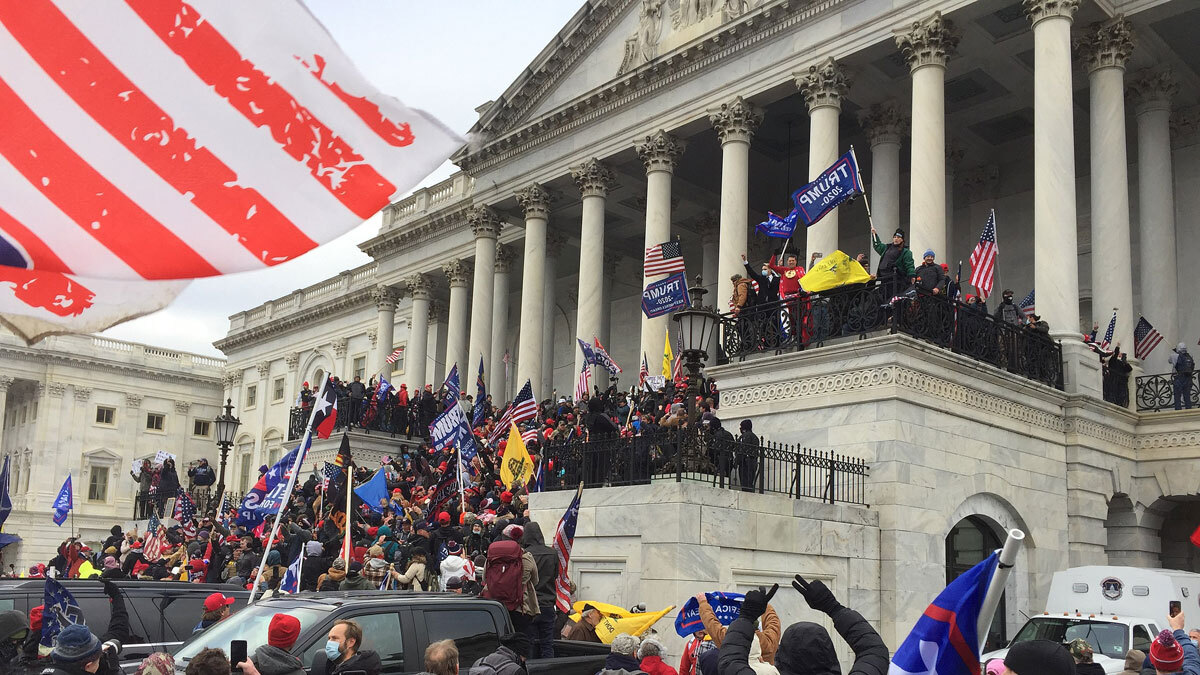
More Info
Photo credit: TapTheForwardAssist on Wikimedia Commons. Licensed under CC BY-SA 4.0.
Jan. 6 insurrection a game-changer for news literacy educators
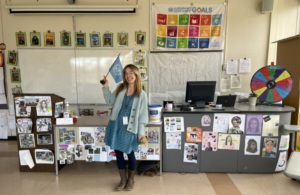

Photo credit: Molly Boyle
The insurrection at the U.S. Capitol on Jan. 6, 2021, was a watershed moment for high school teacher Anne-Michele Boyle.
Until then, she’d spent only a few days teaching media literacy to students in her Global Citizenship course. But when she and her students watched events unfold live during remote learning, she immediately reworked her curriculum.
“I scrapped my entire lesson plan for February and devoted that month to media literacy,” recalled Boyle, who also teaches AP World History at Whitney M. Young Magnet High School in Chicago. “January sixth illustrated to me how fragile democracy is and how dangerous misinformation can be.”
After the uprising, Boyle spent months developing a full media literacy curriculum for the roughly 90 juniors and seniors in her class. She now spends all of January — and often part of February —teaching this subject.
Inundated with information
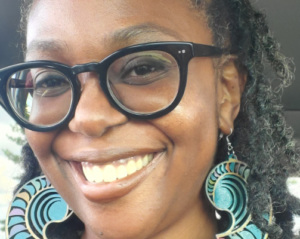

She, too, saw an opportunity to provide her students with a news literacy lesson in real time, noting that they were inundated with videos, memes, news stories, eyewitness accounts and more.
“We had to slow down and really start to analyze what we were seeing and hearing, and then take what we knew about the Constitution, the role of the media, as described in the First Amendment, to really start to grasp what was happening and understand the difference between types of information and how to vet it,” said Burlew, a news literacy ambassador for the News Literacy Project, who teaches in the Mason City School District in suburban Cincinnati.
She uses NLP’s educator newsletter The Sift® and the Checkology® e-learning platform to weave news literacy into her classes. “I initially used Checkology’s ‘InfoZones’ lesson to introduce my students to the various types of information they may come across. I then used these concepts in their study of ancient Athens and Sparta.”
That foundation helped them better understand the uprising and the role of a free press in a democracy. She hopes her students take away from her class the understanding “that we have to be thoughtful and critical consumers of media and hold news outlets to the standards of quality journalism.”
Students share what they learn
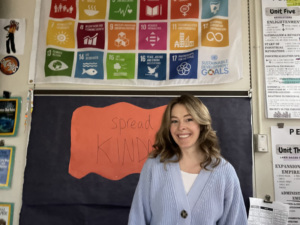

Photo credit: Molly Boyle
To keep her course current, Boyle forgoes a textbook and brings in new resources each year. She also uses educator resources on NLP’s website to help students build essential skills, including lateral reading, reverse image searches, evaluating sources and geolocation.
“We examine the extent to which the sources we use adhere to standards of quality journalism, why standards matter and why journalists have a lot to lose if they don’t follow those standards. We compare this to the news posts students see on TikTok,” she said.
Boyle also teaches Checkology’s “Misinformation,” “Conspiratorial Thinking” and “Understanding Bias” lessons.
As her students begin to recognize the real dangers of misinformation they can act on their knowledge. For example, as part of a final project, some students created news literacy quizzes on the game-based learning app Kahoot! for family get-togethers. They wanted to teach older relatives how to spot conspiracy theories on social media and to recognize mis- and disinformation. “They’re taking the skills they learn and reaching more people,” she said.
And she’s watched their understanding of the problem evolve. “Before we started the [media literacy] unit, most did not realize how scary January sixth was. It is essential for all people to understand the connection between having a strong democracy and strong media literacy skills.”
Personal impact
Burlew has had similar experiences. “In general, students love having the knowledge and power to debunk what they see and hear.”
And for Boyle, the insurrection also had a personal impact. A month prior she had applied to the Fulbright U.S. Scholar Program. Immediately after that day she got permission to resubmit her application with a new focus on a plan to improve media literacy. She won the fellowship.
Both educators want their students to recognize the value of their newfound skills. “First and foremost, media literacy is absolutely essential to a strong democracy. Period,” Boyle said.
